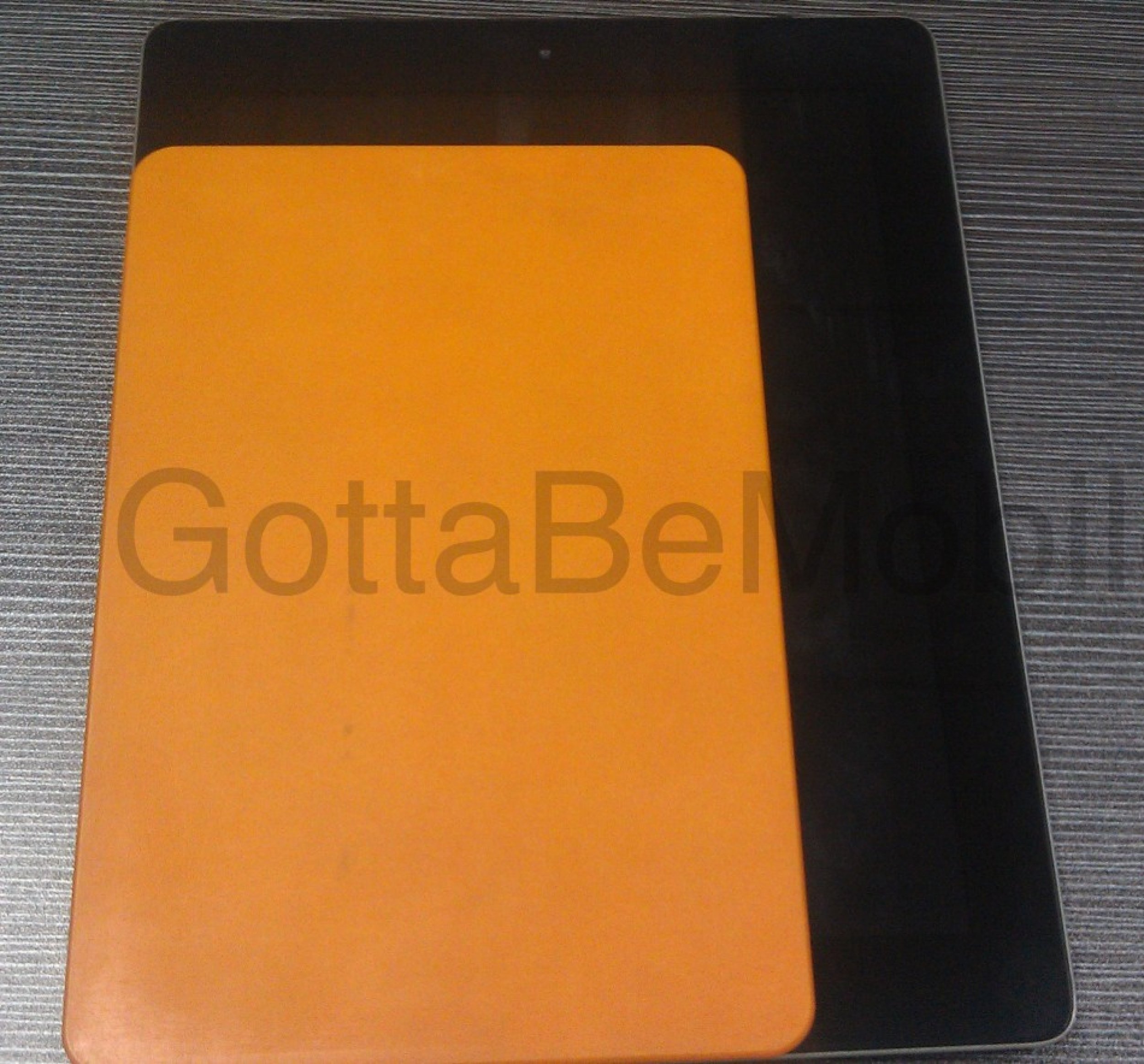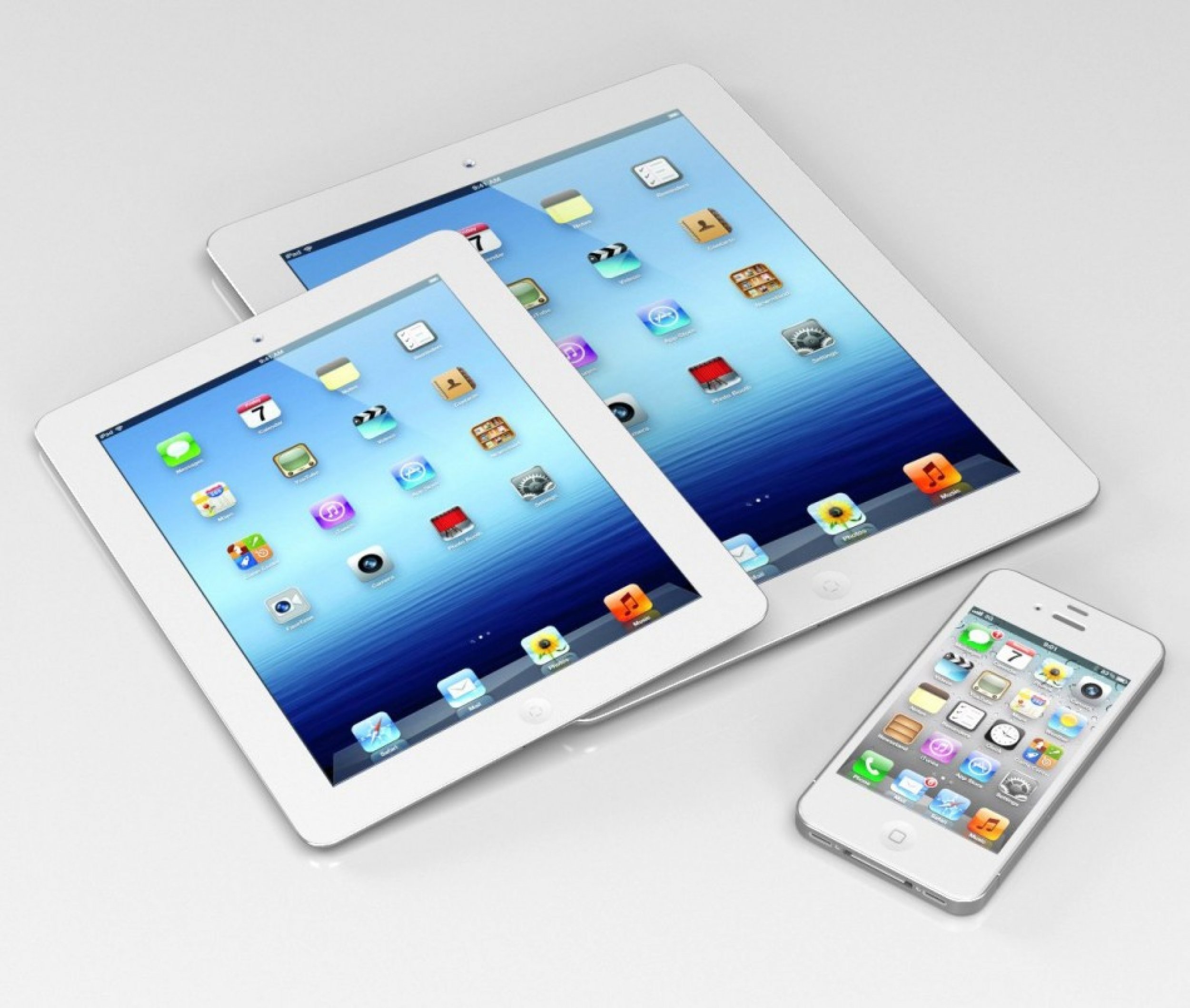Is This Apple's iPad Mini? First Alleged Photos Surface Online [PICTURES]
Rumors of an iPad Mini have been circulating the net since early January, but one major detail has yet to be determined: Exactly how small would an iPad Mini be? Apple will neither confirm nor deny the existence of a mini tablet -- or any of its products, for that matter -- which is why any time photos of iPhone or iPad components surface, it's a big deal. It may be the only peek we get at these products before their official unveiling.
On Tuesday night, Gotta Be Mobile posted exclusive photos of what it believes to be an engineering sample of the iPad Mini design, which reveals many possible features of this tiny tablet. Shawn Ingram of Gotta Be Mobile said that the engineering sample photos came from a trusted source inside the Apple supply chain in Asia.
Check out the photos above, and we'll run through some of the specs below.
Specs Of The Alleged iPad Mini
According to Gotta Be Mobile, the photos suggest the iPad Mini would be much wider and a little taller than the Nexus 7, Google's recently-introduced 7-inch tablet, and it would be slightly thinner than Apple's third-generation new iPad. Here's Ingram with the details:
What we've found, using a pixel count, is that the iPad Mini should be around 213.36mm tall and about 143.67mm wide. This is approximately two-thirds of the size of the new third-generation iPad. The new iPad is 185.67mm wide, 241.3mm tall, and 9.39mm thick.
The sample model did not have any etchings to signify the size of the screen, but current rumors suggest Apple's iPad Mini display will stretch 7.85 inches. One would assume the iPad Mini would boast a Retina Display -- a high-density screen where the individual pixels cannot be discerned with the naked eye -- but word is the iPad Mini will boast an IGZO display, which stands for indium gallium zinc oxide, from Sharp. Sharp's IZGO displays can be fitted for extremely-thin hardware devices and can reportedly handle 330 ppi. They are also said to feature better brightness.
The sample model also includes a smaller dock connector that lines up with the 19-pin dock connector rumored to be included in Apple's next-generation iPhone. This 19-pin port makes sense for the iPad: If the next iPhone makes old accessories obsolete, Apple may try to do away with all last-gen accessories and make all its future mobile devices -- iPads and iPods, included -- compatible with the new dock connector.
We're not entirely sure why Apple has shifted from the traditional dock connectors to these mini ports, but one would presume that Apple would not change a significant feature unless there was a good reason for doing it. A mini dock connector must make the device faster, better, or cheaper. Or all of the above.
A smaller dock connector is definitely better -- less dock space means more room for other insanely great features (more on that later) -- but it's probably also cheaper to mass produce, and potentially faster, too.
TechCrunch noted that the size of the 19-pin port is similar to the high-speed Thunderbolt I/O: It's possible that Apple's smaller dock solution creates a similarly speedy connection, which would be a nice bonus for manufacturers and consumers that will have to replace their old accessories. Assume there will be an annoying adjustment period where users forget their old accessories like clock radios and stereo systems don't work with their current devices, but producers and consumers will adapt eventually.
iPad Mini: How It Fits Into The Tablet Ecosystem
The iPad is a winning product. It's thin, light, powerful, intuitive and beautiful, much more so than any other tablet available. There are few broke things that need fixing, but the only major issue with the iPad has been something Apple can control: The high price of entry.
Each new iPad since 2010 has started selling at $499; the new iPad sells for that now, while the iPad 2's price has dropped to $399. Yet, this high threshold to enjoy Apple's tablet experience has forced many users to turn to competitively-priced tablets from Amazon, Barnes & Noble, and now Google.
Amazon's Kindle Fire and Google's new Nexus 7 both sell for $199; Barnes & Noble's Nook Tablet sells for $250. These other tablets, while quality products in their own right, have no real advantages over the iPad besides their price. If Apple can correctly price the iPad Mini, it could effectively wipe out these tablet competitors.
The rival tablets from Amazon, Barnes & Noble and Google have all arrived in the last year; the most recent arrival, Google's Nexus 7, has the best chance or surviving simply because of the value of the Google brand and the popularity of the Android OS. Amazon sells quality e-ink tablets and Barnes & Noble's Nook has received great reviews, but all pale in comparison to the mighty iPad. If Apple shrinks the iPad so it can pick on someone its own size, it will make mince meat out of the Kindle Fire and the Nook Tablet. But that's when you don't consider price.
It's not the fault of Amazon or Barnes & Noble that they can't compete with Apple; their products are too new and too buggy, which is characteristic of first-generation tablets, even the iPad. In contrast, Apple began working on a tablet back in the early 1990s, even when the company didn't work on the iPhone until the early 2000s. Steve Jobs always dreamed of a tablet with simple, multi-touch functionality, and it took his team years to perfect it. By 2012, the iPad isn't just the best tablet out there, it's the only tablet out there that anyone really takes seriously.
The competitive landscape may change soon with the Nexus 7 and the Microsoft Surface, which is why Apple needs to nail the price to keep these new competitors at bay. If the iPad Mini costs any more than $250, Apple has failed. The point of the iPad is to make computers accessible, and if the Mini fails to get into consumers' hands (as unlikely as that is), Apple risks cannibalizing its own iPad sales and letting newcomers into the space unchecked. Apple needs to hit that sweet $199 price tag. The iPad's success for the next decade depends on it.



© Copyright IBTimes 2024. All rights reserved.






















